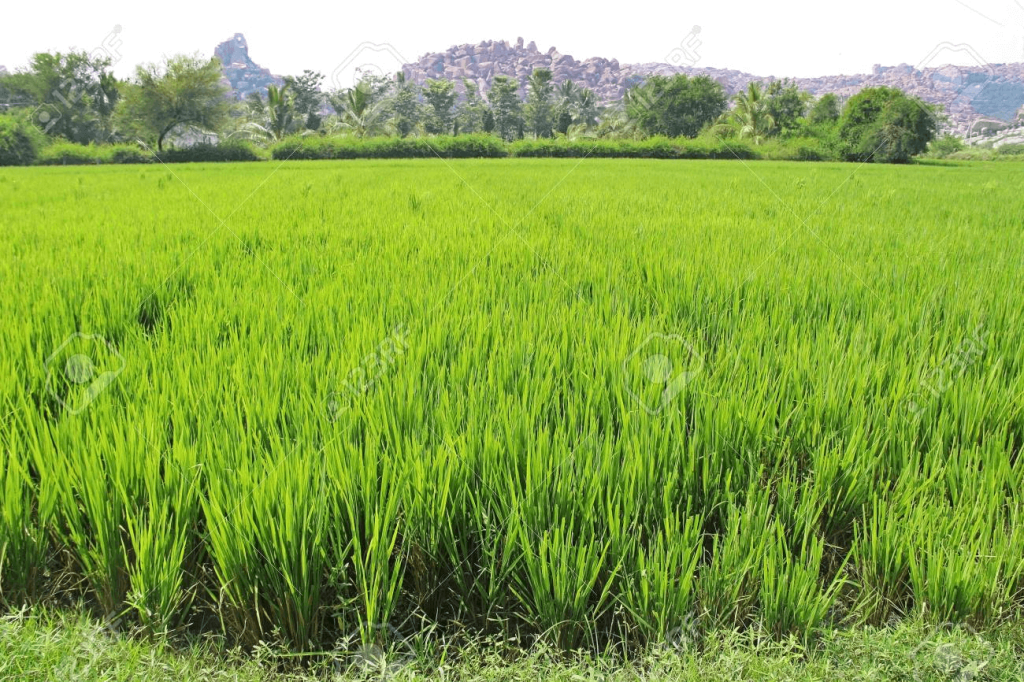Tags
New drought-tolerant rice cultivars promise hope for food security.

By Elizabeth Osayande
In a one-of-its-kind advancement for rice production amid the pressing challenges of climate change, a group of researchers led by a Nigerian scientist, Oyebamiji Yusuf Opeyemi, has unveiled a new line of drought-tolerant rice cultivars. This innovative development, emerging from a study at Universiti Kebangsaan Malaysia, is set to improve resilience and enhance yields, providing farmers worldwide with a vital resource in the battle against food insecurity.
Drought remains one of the most significant threats to rice farming, causing decreased yields and heightened risks to global food security. Recognizing this challenge, Oyebamiji and his team utilized a novel four-way crossbreeding strategy to produce and assess 28 new breeding lines, BLs endowed with traits for sheath blight resistance, drought tolerance, and resilience to submergence.
“We aimed to create high-yield, drought-tolerant rice lines by integrating various genetic features,” Oyebamiji explained. “This research not only addresses immediate agricultural challenges but lays the groundwork for sustainable rice production in the future.”
In their study, the researchers developed a four-way F3 rice population by crossing genotypes with key yield and stress-resistance traits. This study built on earlier research, combining essential genes including the submergence tolerance gene (Sub1) and critical drought-yield genes (qDTY12.1 and qDTY3.1).
Despite some light rainstorms during the tests, the results were remarkable. On average, the new breeding lines outperformed traditional check varieties across numerous parameters, including grain yield. A staggering 71% of the novel lines yielded better than the standard genotypes under drought stress conditions.
“Seeing our new lines excel during such a challenging period was revolutionary,” Oyebamiji noted. “Most traits showed a positive correlation with grain yield, underscoring their importance in improving overall crop performance.”
The implications of this research are far-reaching, particularly in regions vulnerable to drought, such as Asia and Sub-Saharan Africa, including Nigeria—where rice is a dietary staple. The International Rice Research Institute (IRRI) has indicated that drought affects over 23 million hectares of rainfed rice globally, leading to billions in losses each year.
“This research represents a turning point in rice breeding,” a lead researcher on the project stated. “By integrating multiple stress-resilient traits, we’re not just improving yields but ensuring sustainability for millions of farmers facing unpredictable weather patterns.”
The study’s findings have not only garnered international attention but have also secured Oyebamiji the Best Oral Presenter Award at the 5th International Plant Breeding Conference, a notable biannual event in the field. “The integration of genes like qDTYs with Sub1 has proven transformative,” he stated during his presentation. “This marks a new era for sustainable rice production.”
As these drought-tolerant, high-yielding rice lines move into further breeding and testing phases, their potential benefits for Nigerian farmers are considerable. Oyebamiji optimistically concluded, “We envision a future where farmers, even in the harshest environments, can cultivate rice with confidence. This innovation has the potential to boost Nigeria’s economy, enhance farmers’ livelihoods, and significantly reduce our reliance on rice imports.”
This unique work contributes to food security and also holds the promise of resilience for millions of smallholder farmers grappling with the realities of climate change.
https://www.vanguardngr.com/2025/02/new-drought-tolerant-rice-cultivars-promise-hope-for-food-security/Published Date: February 4, 2025






